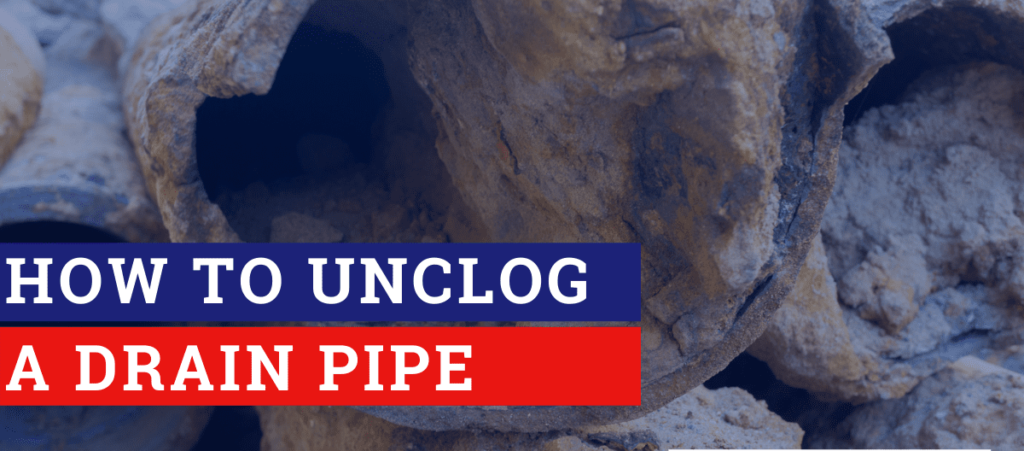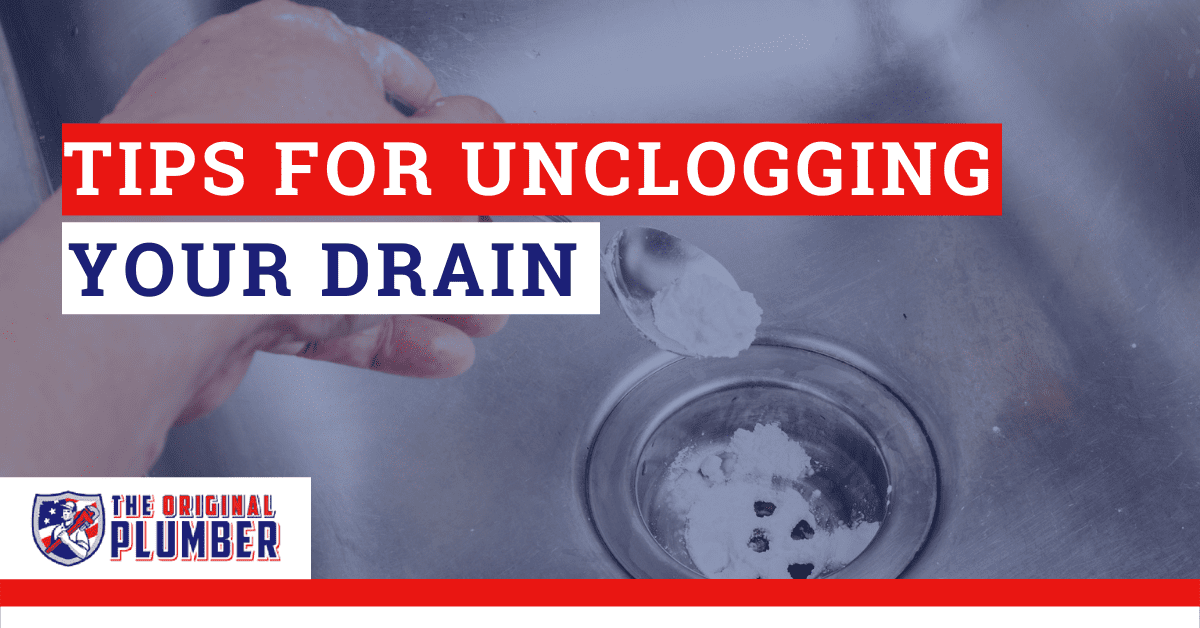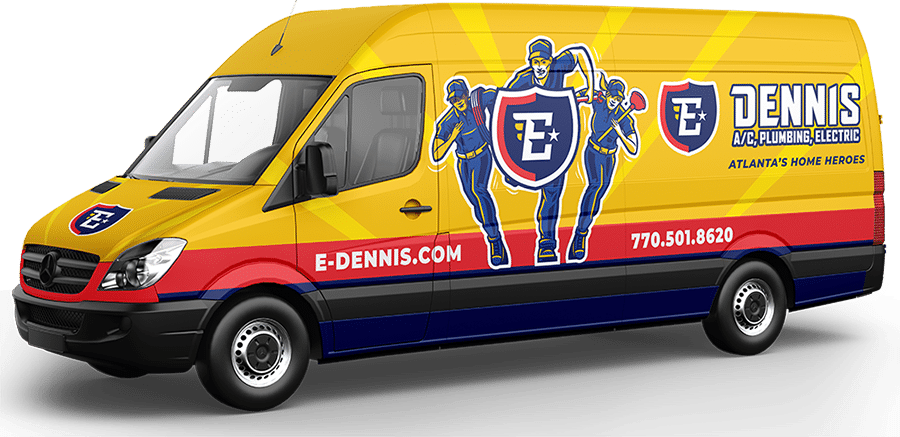While your drains are working fine, they’re not something you’re thinking about but as soon as they get a clog, you remember just how important they are.
If you’re wondering how to unclog a drain pipe, one of the first things you need to determine is what caused the clog in the first place. When your clog is the result of something accidentally flushed down the drain, there are several things you can do to try to remove the clog yourself but you may need to call a trusted plumber to help you break up the clog.
How Do I Know My Drain is Clogged?
Clogged drains are one of the most common plumbing problems that homeowners experience. Sometimes it’s easy to know that you’ve got a clogged drain right away because something got flushed down the drain that shouldn’t have or you notice your sink or toilet draining slowly. Other times it’s not that easy to know you’ve got a clogged drain pipe.
What Clogged My Drain?
Lots of different things can clog the drains in your kitchen, bathroom, laundry room, or other areas.
In the kitchen, pieces of food that go down the garbage disposal but aren’t fully broken down can cause a clog in your kitchen sink. You can also get a sink clog in the bathroom if toothpaste, soap scum, or hair gets into the drain.
Tubs or showers can get clogged with hair and soap scum, even when there’s a cover over the drain hole. When you’re in the shower, you can keep an eye on the shower drain to make sure it’s draining properly. If you notice it’s not, it’s time to treat your drain before the clog gets any bigger.
If you’re not sure if you’ve got a clogged pipe, look for one or more of the following warning signs:
Toilet Flushing Problems
If your toilet isn’t flushing or backing up, that could be an indication that you need to unclog your drain. A clogged toilet may have sewage sitting in them or toilets overflowing after flushing them. Because all of the drains in your home use the same sewer lines, you might have problems with a toilet that isn’t clogged.
With a little detective work, you should be able to locate the toilet that’s clogged to start working to break up the clog. Toilet clogs are usually caused by using too much toilet paper, flushing things like feminine products, diapers, or wipes, or trying to flush something else not meant for your drains.
Read More: Why does my toilet keep clogging?
Why Do I Have Low Water Pressure?
You turn on the faucet to brush your teeth, wash dishes, or take a shower and water is barely coming out of the faucet. The lack of water pressure is a sign that you’ve got a clog somewhere in your drain pipes.
Another possible reason for the change in water pressure could be cracked or broken pipes where water can escape. You may not notice any of the damage to the pipes if they’re underground. Scheduling annual maintenance of your plumbing can help find these cracks before they become they become a bigger problem. Your plumber can use a camera to inspect the current
Why Is There a Bad Odor Coming From My Drain?
Clogged pipes are not only an inconvenience, they can also cause an unpleasant smell. When things are stuck in your pipes, they can collect hair, sewage, pieces of food, and other things that can rot and break down which causes a bad odor. The smell won’t go away until the clog is broken up and removed.
Why Is the Water Draining So Slowly?
If water is taking longer than usual to drain, there could be blockages in your drain pipes. A continuous whirlpool motion should occur when draining a bathtub, sink, or toilet. When you don’t see that, it could be a sign that there’s a clog in one of your pipes.
Why Are My Pipes Making a Gurgling Sound?
Clear pipes don’t make much of a sound when draining. If you hear a gurgling sound when you flush your toilet or are trying to drain a bathtub or sink, you could have a clog in your pipes. Gurgling sounds can mean there’s something stuck in your pipes and the water is working to go around the clog while allowing air into your pipes.
Can I Unclog My Own Drain?
You can try unclogging your own drain. Be careful with whatever method you choose to use as it could unintentionally cause more damage to your pipes. There are lots of different methods to try depending on the type of clog you have and where it’s located.
If you’ve tried to break up the clog without luck, it may be time to reach out to a professional. They can come and use their equipment to determine exactly where the clog is and what’s causing it. They’ll also be able to quickly and safely remove the clog for you so you can return to using your sewer system normally.
Finding clogs can be challenging even for experienced plumbers, and you may end up wasting a lot of time. The most effective method of locating clogs is camera inspection. Using the camera helps to avoid unnecessary digging and guessing.
Tips for Unclogging Your Drain
Clogs don’t always happen during regular business hours or at the best of times. Most homeowners will try unclogging drains on their own before calling a professional plumber. If you’re looking for some ways to unclog your drain, here are some ways to get the job done:
1. Baking Soda, Vinegar, and Hot Water
This method works best for a dry drain that you’re trying to unclog in a sink, tub, or toilet that’s not refilling with water. Pour some baking soda into the drain. Next add some vinegar to the baking soda to cause a chemical reaction to help loosen up the clog inside your pipe. Let this mixture sit for a few minutes then wash it down the drain by pouring boiling water over it.
When using hot water, be sure it’s not too hot or you can cause your fixtures or pipes to break due to the extreme temperature. If the water from your tap doesn’t get very hot, you can warm it up on the stovetop or in the microwave. And use caution when pouring it down the drain so it doesn’t splash on you.
2. Wire Coat Hanger
Using a wire hanger can be a good way to help remove a clog that’s close to your drain. Unbend the hanger and make it as straight as possible, leaving a small hook at one end. Begin gently putting the hooked end of the hanger into the drain. Slowly pull it back out to see if you can hook the clog and pull it out of the drain.
3. Use a Drain Snake
A drain snake is a long cable that goes down into your drain to help break up a clog. Manual snakes have a handle on the end that you can turn like a corkscrew or fishing pole. After putting the end of the snake into the clogged drain, use the handle to release the cable into the drain pipes until you feel the clog inside the pipe. Move the cable from the snake to break up the clog and allow the water to flow through the pipes.
You can also get automatic plumbing snake so you don’t have to manually put the cable into the drain and pull it back out. These are usually connected to a drill or other power source in order to run.
Be sure to thoroughly clean the snake when you’re finished using it.
4. Use a Plunger
You’ll be able to find a plunger in almost any bathroom and it’s one of the most common ways to remove a clog. For this method to work best, there should be a bit of water in the toilet or sink that has the clog. Place the plunger over the drain opening to form a tight seal. Push the plunger up and down several times to help push the clog through the drain pipe. When you remove the plunger from the toilet or sink, the water should flow down freely.
This method can get a little messy. You may need to remove water from the sink or toilet so it doesn’t splash out. Rags or towels on the ground can also be helpful to keep things from getting too messy if there’s a stubborn clog. Putting rubber gloves on to protect your hands can also help contain the mess.
5. Use a Chemical Drain Cleaner
Using a chemical drain cleaner like Draino can help to remove clogs, even the stubborn clogs. Be sure to follow the directions on the bottle for whatever you’re going to use on your drains. Generally, you need to add the drain cleaner, let it sit, and wash it down with some boiling water.
When To Call a Plumber for Your Clogged Drain
Clogged drains are no joke. When you’ve tried everything you can but the clog won’t budge, it’s time to call a professional plumber to help.
Contact E Dennis for professional drain cleaning services, available 7 days a week. Our highly-trained staff can get the work done quickly and affordably.






